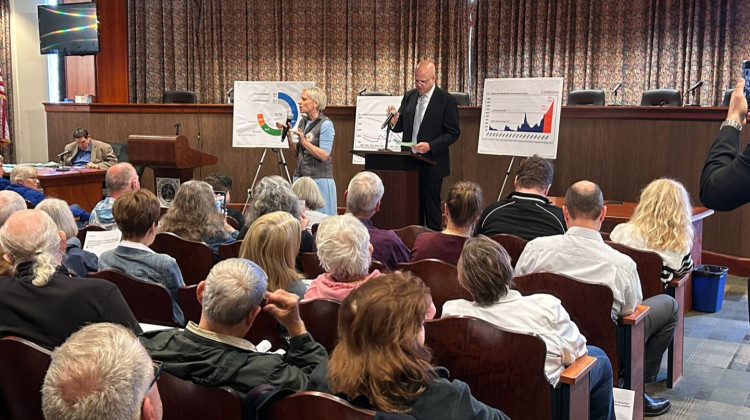
State lawmakers Wednesday heard a lot of support and a few fears about the local impacts of short-term housing rentals through platforms such as Airbnb.
Flickr/public domainState lawmakers Wednesday heard a lot of support and a few fears about the local impacts of short-term housing rentals through platforms such as Airbnb.
Commerce and Economic Development Study Committee members say they want any future regulations on the issue to protect property rights – for both hosts and their neighbors.
The committee didn’t formally recommend new legislation on short-term rentals. Supporters of a failed bill that would have kept towns from banning those rentals have said they’ll reintroduce the measure next session.
Either way, local officials want local input. Some – from Lafayette, which passed an ordinance this year, and Carmel, which is developing one – suggest the state adapt local permit processes to let neighbors weigh in before a short-term rental starts up.
Their anecdotes about nuisance Airbnbs had some lawmakers worried.
But Indiana Association of Realtors lobbyist Maggie McShane wants the committee to look at these rentals’ economic benefits for homeowners and local commerce.
“Be cautious about not adding undo regulation and burden and potential costs that would prohibit somebody from being able to enter into this market and fill a need,” she says. “There’s a need out there – consumers love these properties.”
Airbnb owners say they love owning them, too – and none who testified said they’d ever had serious issues with a tenant. Catherine LaCrosse has been renting out her Broad Ripple properties to groups of visitors since 2015.
“This is an important part of our local economies,” she says. “When you’re able to create a community, or create a home where people can be together – what a flipping privilege that is. I mean, I love it.”
Another host who testified says she’d fixed up blighted homes in Indianapolis and Lafayette to rent out on Airbnb, and had fewer problems with those tenants than in her long-term rentals.
Still, lawmakers generally agreed future bills should preserve some local control and allow exceptions for nuisance issues – such as those experienced by members of the East Lake Lot Owners Association.
They told the committee a handful of Airbnbs have caused problems along their private lakefront.
Airbnb lobbyist Laura Spangin told lawmakers Indiana has 3,100 Airbnb hosts total. They earn an average of $4,000 per year, with guests staying an average of three nights at a time.
More than a third of the hosts are in Indianapolis, and smaller cities have a few dozen or a few hundred apiece.
The state legislature’s tax policy committee is currently working on an agreement to let Airbnb collect and remit state occupancy taxes for its hosts, rather than having them pay the state on their own.
Spangin told lawmakers her company has such agreements in “many states and many cities,” including Iowa and Kentucky.
 DONATE
DONATE







 Support WFYI. We can't do it without you.
Support WFYI. We can't do it without you.